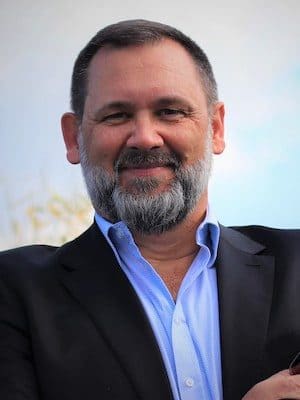In Bill Moyers interview with Wendell Berry, Berry stated: “Learn all you can about where you are.”
The comment reflects a commitment to contextualization as it relates to farming and ethical use of the land.
As important as context is to farming, how much more important is contextualization to our relationships with people?
One of the dangers of Western-type missionaries who are solution-oriented problem solvers is that we like our ways of doing things.
New to a community, we naturally set out to interpret what is going on in a place using the mental and religious lenses we brought with us.
Not even able to speak the local language, we tell stories back home about the truths we have discovered about the local people.
Unless we are intentional about suspending judgment, we can seriously misrepresent what is actually taking place.
Years ago, I heard about a new pastor who wrote to his good friend after his very first Sunday in the pulpit of his new church.
The Lord’s Supper was observed that Sunday and, as was the tradition in the church, there were two options for taking the wine.
You could take from the tray of small, individual glasses or you could wait and a large, common cup would be passed later.
This new pastor immediately interpreted this as, to paraphrase his friend, “the ‘holier than thous’ would make a public display of their righteousness and refuse the small cups in favor of receiving the common cup.”
Not even one full week into his new place and the pastor summed up in one misguided swipe his disdain for several members of his new congregation.
Unfortunately, missionaries make similar judgments based on limited data all the time.
Several examples come to mind:
â— These are “a degenerate people.”
â— In this (majority Catholic) country, “only 3 percent of the people are Christian.”
â— This church “is not interested in reaching out to anyone else.”
â— It is so difficult to be a missionary here because “everyone is so liberal.”
While we will never lose our own cultural lenses, our goal is to learn to use bifocal or trifocal lenses as we see and interpret other places.
This takes time and requires a predisposition toward learning. And until you have learned all you can, suspend your judgment.
Does this mean missionaries are never to make interpretations about or comment on their new cultural homes? Of course not.
We will never, no matter how long we live in a place, become native. Ask anyone who has moved to Texas and lived there for three or four decades if they are considered real Texans.
What it does mean is that until we can at least identify with those we come to serve, we should resist trying to definitively identify things about them.
Finally, I have found that degrees in theology, business, healthcare or organizational management are not much more useful than the paper they are printed on when we find ourselves immersed in a cross-cultural context.
It is not the education that is lacking, but that most of our education is grounded in a particular context (Western enlightenment, for example), which tends to interpret itself as the best.
Roman Catholic missionary Vincent Donovan shared his experiences among the Masai people of east Africa in his book, “Christianity Rediscovered.”
Upon realizing that the articulation of faith by the Masai he served among was even richer than his own educated understanding, Donovan commented that the missionary endeavor requires “extreme care and delicate caution and much humility.”
There are methods and principles that training and education can teach and that make our ministry meaningful and exciting.
Who doesn’t get excited thinking about how important knowing the details of the debate between Erasmus and Luther can be in deciding whether a homeless person is deserving of the spare change in our pockets?
And as I am sure all missionaries are aware, being well versed in Asset Based Community Development can help us decide which local person to hire to clean our home.
Nevertheless, knowing these things but not seeing how they fit contextually makes us susceptible of continuing a form of colonialism where the best from the West is imposed on the rest without regard to context.
To avoid these situations, Berry’s advice is worth heeding: “Learn all you can about where you are.”
 Shane McNary, along with his wife, Dianne, are Cooperative Baptist Fellowship field personnel serving in Slovakia. A version of this article first appeared on their blog, McNary Ministry, and is used with permission. You can learn more about the McNarys here and you can follow Shane on Twitter: @RShaneMcNary.
Shane McNary, along with his wife, Dianne, are Cooperative Baptist Fellowship field personnel serving in Slovakia. A version of this article first appeared on their blog, McNary Ministry, and is used with permission. You can learn more about the McNarys here and you can follow Shane on Twitter: @RShaneMcNary.
Baptist World Alliance representative to the UN in Geneva, chair of European Baptist Federation’s Freedom and Justice Commission, and Cooperative Baptist Fellowship Field Personnel serving among the Romani people in Slovakia and Czechia. When not serving in any of those capacities or preaching somewhere, you will find him with his camera hiking along the mountainous trails of Poland or Slovakia.

